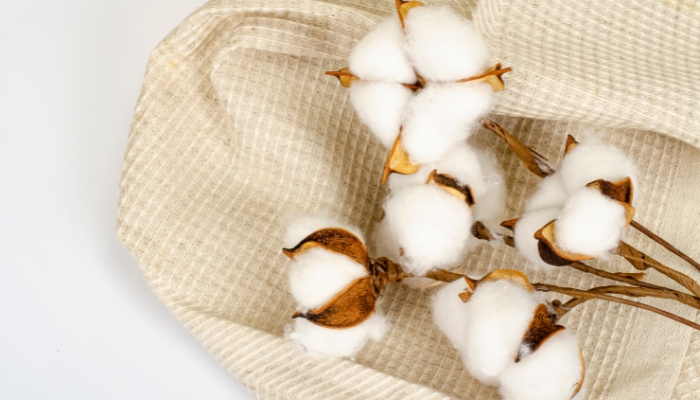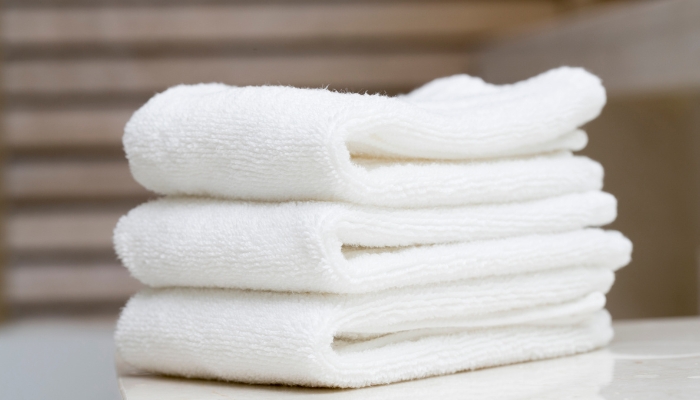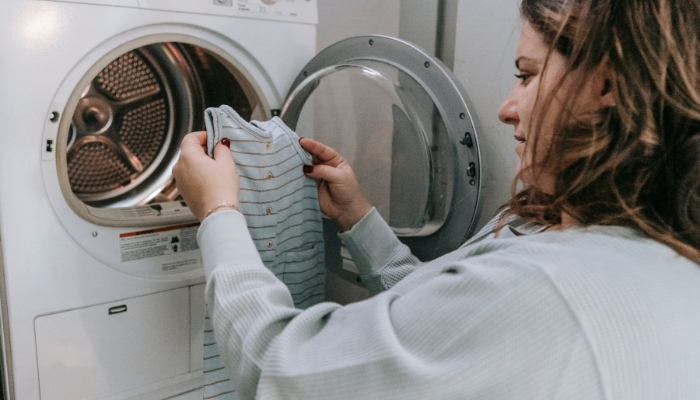Getting your laundry clean and fresh takes several steps; you need the right detergent and the ideal settings for every load. And then there's figuring out whether your laundry needs fabric softener and how much. Fabric softener makes everything smell better, so naturally, you should use it every time, right?
Not exactly. Fabric softener contains lubricating ingredients that soften clothing fibers to help reduce wrinkles, diminish static cling, reduce pilling and shedding, and add fragrance. But these same lubricating ingredients can harm certain materials!
But don't worry about ruining your clothes in the wash — just follow our list of do's and don'ts!
DO: Cotton & Natural Fibers

If your clothes are made of cotton and natural fibers, you should use fabric softener. You'll get the benefits of minimal wrinkles and pilling without worrying about whether your clothes are ruined. But the key is not to overuse fabric softener — less is more in this case!
DON'T: Sportswear
Sportswear is often made from moisture-wicking materials to help with sweat, and because of this, you should never use fabric softener on your workout clothes. The softener will coat the clothing fibers and prevent them from wicking away moisture and ruining the effect of your sportswear.
And since most sportswear is made from materials like elastane (in spandex), fabric softener can cause the fabric to lose its ability to stretch and reshape itself!
Pro Tip: Other garments like underwear and bra often have elastane materials, so avoid fabric softener for these loads!
DO: Cotton Towels

There is some debate on whether or not to use fabric softeners on towels, but it comes down to their material. Sure, you want soft, fluffy towels, but when used on the wrong material, it can ruin the fiber's absorbency. But for cotton towels, the occasional use of fabric softener is more than okay — it's encouraged!
Just make sure not to use fabric softener too often. And if you want to keep the towels fluffy and fresh between bouts of fabric softener. Use ¼ cup of distilled white vinegar instead. It'll fluff up your towels AND help remove bacteria!
DON'T: Water-Resistant Materials
Like moisture-wicking fabrics, water-resistant materials and fabric softeners should never go together. Water-resistant materials don't allow moisture to enter them, so washing them is already challenging. You can't use regular detergent and should always stay far away from fabric softener.
Instead, use warm water on your regular cycle and a cleaner specifically designed for waterproof fabrics.
DON'T: Microfiber
Microfiber is an incredible material with intricate threads that can trap dust and absorb spills. Unfortunately, fabric softener will soften these threads and make them less effective! So, if you're washing a load of microfiber towels or other items, leave out the softener!
DO: Clean Your Washer Regularly

Have you ever wondered what makes your washer stink? It's probably the buildup of fabric softener in the drum. The same lubricates in the softener that helps with clothes will coat the drum of your washer, which will then trap in soil and odors.
To avoid that, you must regularly clean your washer by adding distilled white vinegar to the softener dispenser and running an empty load on hot water. This should help remove any odors, and if you're worried about lingering vinegar in the drum, run an additional hot cycle without any vinegar.
Pro Tip: If you use dryer sheets, clean your dryer at least four times a year to prevent the residue from building up!
DON'T: Pour Directly on Fabric
Fabric softener works wonders on compatible fabrics, but they work best when diluted in water during the rinse cycle. So, you should never pour the softener directly on the clothes as it can cause stains and prevent them from getting thoroughly cleaned.
The best way to add fabric softener to the load is either in the fabric softener dispenser or manually adding it during the rinse cycle once the drum is full of water.
DON'T: Use on Baby Clothes

You might think that because baby clothes are so soft, using fabric softener is a must, but you'd be wrong. The ingredients used in fabric softener can irritate babies' soft skin and be uncomfortable to wear, so it's best to skip it when washing their clothes.
And if your children have flame-resistant sleepwear, never use fabric softener, as it will lessen the resistance!
Pro Tip: Add ½ cup of vinegar to your load of baby clothes to naturally soften them!
Ready to Do Laundry?
There you have it — the do's and don'ts of fabric softener, so doing your laundry is less of a hassle. Now you won't keep ruining your clothes! But if your laundry appliances have seen better days, don't wait to upgrade! At Dependable Maytag Home Appliance Center, we have plenty of name-brand laundry appliances to make laundry day a breeze!
And if you have any questions, give us a call! Our team of experts is happy to help!